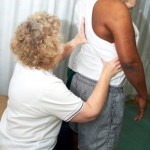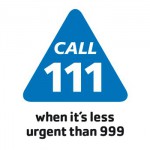
Celebrating International Nurses Day
Published: October 23, 2015
Every year on 12 May, International Nurses Day takes place to mark the contribution nurses make to so many people’s lives every day. Over 3,000 nurses work at our Trust and to celebrate International Nurses Day this year, the Trust hosted events to recognise the work our nurses provide to our local community. Tea parties […]

Back pain prevention
Published: October 23, 2015
Did you know that back pain is the most common cause of time off work in the United Kingdom? Affecting more than 1.1 million people in the UK each year, back pain is the second most common reason for a GP visit. Bad posture while sitting or standing, bending awkwardly and lifting equipment incorrectly are […]

Parkinson’s Disease
Published: October 23, 2015
Did you know that Billy Connolly, Michael J. Fox and Muhammad Ali are just some of the celebrities who have Parkinson’s disease? Parkinson’s is a condition that affects physical movement and although it is not fatal, it can place great strain on the body. If the part of the brain controlling movement cannot work so […]

Breaking Barriers for Patients
Published: October 23, 2015
Miscommunication and misunderstandings are sometimes reasons why patients stay longer in hospital. To address this, Heart of England NHS Foundation Trust has been working alongside Community Services and external agencies to run the ‘Breaking Barriers for Patients’ project. Launched last week, the seven day initiative focused on patient discharge and the more effective use of […]

Nutrition and Hydration Week
Published: October 23, 2015
National Nutrition and Hydration Week, taking place from 17-23 March, is about raising awareness of the importance of good nutrition and hydration across the healthcare environment. Across the NHS and here at Heart of England, we are keen to support the week which promotes the following: The 10 key characteristics for good nutritional care. The […]

What are rare diseases?
Published: October 23, 2015
A disease or disorder is defined as rare in Europe when it affects less than 1 in 2,000 people.* There are over 6,000 rare diseases including cystic fibrosis, which affects the lungs and the digestive system, and Huntington’s disease, which causes progressive damage to the brain cells. Examples of lesser known rare diseases are Epidermolysis […]

Children and Young People Coming into Hospital
Published: October 23, 2015
The prospect of coming into hospital can often be a daunting one, especially for children and their families. Understandably, there are many questions and anxieties about what their visit will entail and how it will affect them. In order to put minds at rest, Heart of England has put together a guide for young patients, specially adapted […]

HIV- New Website Launched
Published: October 23, 2015
It is estimated that there are around 100,000 people living with HIV in the UK, a fifth of which are unaware that they even have the virus – a statistic that calls for imminent action. Birmingham Heartlands HIV Service is one of the largest HIV centres in the UK and, in a bid to help […]

Patient Falls in Hospitals
Published: October 23, 2015
With patient falls costing the NHS £2.3billion a year, this remains one of the most important areas of focus for the health service and the safety team at Heart of England. If a patient falls, their recovery time will be delayed and therefore their time spent in hospital may increase which is bad news for […]

NHS Direct To Be Replaced With NHS 111
Published: October 23, 2015
There are some changes taking place across the country with respect to the best numbers to call in order to obtain non-emergency medical help. Specifically, the NHS Direct helpline has been replaced with a new NHS 111 service. What is NHS 111? The new NHS 111 service is available 24 hours a day and 365 […]






